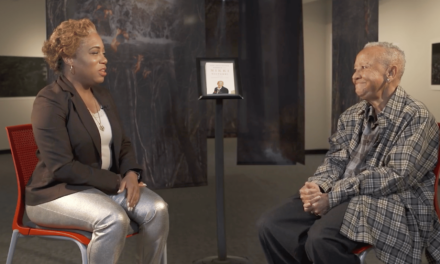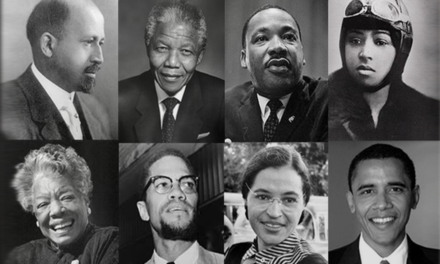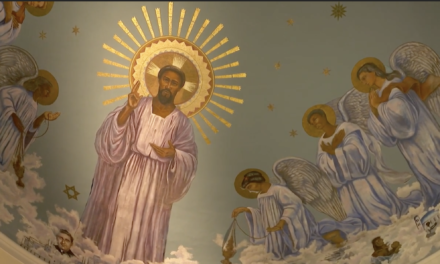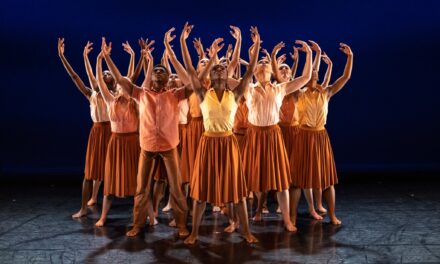In a resolute stand against the impact of gun violence in communities of color, the Church of the Messiah is gearing up for its 16th annual Silence the Violence march and rally on June 17. The community-led event, deeply rooted in principles of unity and solidarity, seeks to advocate for change and bring an end to the alarming rate of gun violence impacting communities of color.
RELATED: 15th annual Silence the Violence march rallies to stop gun violence in Detroit
According to Everytown for Gun Safety, Black Americans experience gun-related deaths at a rate 10 times higher than their white counterparts. Young people are impacted the most by this epidemic, with gun violence being a leading cause of death among youth aged 15-24.
Against the backdrop of these staggering statistics, the Silence the Violence march and rally will offer peaceful demonstrations, engaging speeches and heartfelt testimonials to shed light on the urgent need for comprehensive gun control measures, increased community resources and holistic approaches to violence prevention.
RELATED: FORCE Detroit discusses creative solutions to gun violence in communities of color
Church of the Messiah Pastor Barry Randolph joins “American Black Journal” host Stephen Henderson to preview the 16th annual event and talk about how the march honors gun violence victims. Plus, they talk about the growth of the event over the years, how other cities are joining the efforts by holding similar activities, and the importance of creating cohesive communities to help eradicate gun violence.
Full Transcript:
Stephen Henderson, American Black Journal, Host: The Church of the Messiah is going to hold its 16th annual Silence the Violence March and Rally on June 17th on Detroit’s east side. This event honors victims of gun violence and brings together elected officials, law enforcement, religious leaders, community activists and residents to find solutions to stop the shootings. I spoke with Pastor Barry Randolph about the plans for this year’s gathering. Silence the Violence march has really grown from the original concept and the first years of you doing it. Talk about how different it will be this year when you do it on June 17th.
Pastor Barry Randolph, Church of the Messiah: Yeah it’s amazing. Can’t believe it’s been 16 years. This will be the 16th annual Silence the Violence march. This year, well, last year it had grown so large that other people came and said, hey, we need to be doing this in our city. So we’re going to be doing it in other cities across the state of Michigan. So it’s going to be in Ann Arbor, Grand Haven, Flint, Kalamazoo, Oxford, Southfield and Pontiac. And so there will be other cities joining us honoring the innocent victims of gun violence.
Some will hold marches, some will have prayer rallies, some will be doing sit ins. And in Southfield there’ll be a gun buyback. So they’re going to be different across the state of Michigan. But it’s expanded. Last year, about a thousand people show up. This year, we expect between two and 3,000 people.
Stephen Henderson: So I want to give you a chance just to talk a little about what’s going on. This is a strange time in the city for violence. We’ve gotten through the pandemic, the awfulness of the pandemic. Everybody, all of us had to kind of relearn how to function in the world, I feel like after all the loss and disruption of that. And we come out of it to what seems to be shaping up as an era of increasing violence in the city. It’s not safer. It’s worse. You see it up close with young people. You see it in the community there, at the church. What do you think is going on? What is why is this happening?
Pastor Barry Randolph: Well, Stephen, that is a great question. And one of the things that I think about is now in 2023, the leading cause of death among young people or children under the age of 17 is guns. Something 100% preventable. This issue is not all across the world. It is a unique American way of dying. And I think that’s something that we need to look at. It used to be accidents or illness, and now it’s guns. This is something that we can do something about and I always have to tell people this has nothing to do with your Second Amendment rights being able to carry a firearm.
This is about getting it out of the hands of people who shouldn’t have one. People who don’t believe in just carrying a firearm to protect themselves, but who are planning on committing murder. That’s really the issue that we’re trying to get down to. That’s why we’re trying to silence that violence. But this is unique across the country. It’s not just Detroit. It’s everywhere. And firearms there’s an easy access to it and there’s a lot of people who shouldn’t have it, who have it. And they’re taking their anger and frustration out on other people. So. Times have changed.
Stephen Henderson: I know you do a lot of work reaching out to young people in your community. Talk about the things that we need to be doing to divert them from this kind of thing. Obviously, marches like Silence the Violence are really important. But you work all year on this issue.
Pastor Barry Randolph: Yeah. And what I like to tell people, too, because people come and say, well Pastor Barry, marches don’t stop gun violence. The march is not to stop gun violence. The march is to remember those who died because of gun violence. So we walk around with signs and a picture of those so we want to remember them and we want to honor them by creating hopefully more peaceful communities, more cohesive, strong communities.
I let the young people know that I’m 60 years old. So, Stephen, I’m older than you. And I remember a time when gun violence was not the leading cause of death. There was no such word as carjacking or drive-bys. No such words as mass shootings. You didn’t hear about this. That wasn’t that long ago. So there was a time when this was not as big of an issue as it is now. So it’s not like we’ve never not had a time when gun violence was not a major issue in this country. So we know that that can exist and we know that that can happen.
And what we’re trying to do is make sure that happens. What we need to do is to build our communities and neighborhood. You need to have more affordable housing. We need to have job training. We need to work on business incubation. We need to work on education and skilled trades to make sure that our young people have a good, positive, strong future. And we need to teach them their value, the value of who they are as a human being more than outward material things.
Stephen Henderson: Yeah. The march. People. Anyone can participate, obviously. But I wanted to talk just a little more about the things that you have seen about, you know, changing the sense of community around this issue from the march. You were just talking about, people saying, well, marches don’t solve crimes or marches don’t stop people from shooting each other. But you are building a real sense of community around how we think about this issue, how we deal with this issue. Talk about over the 60 years how that’s changed.
Pastor Barry Randolph: Well, I can tell you our very first March, we had 58 people, and that was specifically for the community of because we had a couple of unfortunate murders of young people and we decided we were not just going to sit back and let them be statistics, we were going to do something. So we created an organization to help fight crime and build community. So it was about doing that specifically for. Then within a couple of years, we became a citywide event and then lately it became a statewide event. And so it was about bringing the resources directly to the community, to those who are the most vulnerable.
And one of the things that I am proud of over the years is that so many groups and organization networks on gun violence intervention are part of what we do every year. So the people who do the boots-on-the-ground work, the people who work with the ones with the guns, the people who work in dangerous communities and neighborhoods, they come and they participate. And we share our results on what’s happening, what’s working. Ways that we can actually do a better job. It’s all about building community and building people.
Stephen Henderson: Yeah, the community that you serve down there at Church of the Messiah has a lot of hope because of the church. Talk more about the other things that you’re doing to again, lift up opportunity and safety and community in that part of the city.
Pastor Barry Randolph: Though thanks because one of the things that we do, we try to make the word of God tangible so it’s not about just coming to church. It really is about being the church. You can come to Church on the Messiah and you can rent an apartment or townhouse. You can come get free Internet. You can come for workforce development training. You can come to find a job in our employment office. You can come and be part of our business incubation center. You can come be part of a marching band which will help you be able to get into school.
You can come use our solar powered charging station. You can come to our doctor’s office and you can come to church on Sunday. So it was one of these things where you can come for all of the different things that you may need to improve the quality of life. To include, improve your quality of life and those of the people who are around you. It’s all about being church. It’s all about being about the community and making a difference. And one of the reasons why we’re so successful with young people because we take the activism of what it is that we believe and take it out to the community and neighborhood and make it happen. And it’s all tangible. You can see, touch, feel, use it and be a part of it. And that’s what Silence the Violence is all about. Resources to be able to build our community so that it is a safe place. We can eradicate gun violence.
Stephen Henderson: Yeah. All right. Pastor Barry Randolph, again, always great to catch up with you. And congratulations on 16 years of the Silence the Violence march. We look forward to it on June 17th. Thanks for being here with us on American Black Journal.
Pastor Barry Randolph: Thank you so much. 10 o’clock. Saturday, June 17th. Thank you so much.
Stay Connected:
Subscribe to Detroit Public Television’s YouTube Channel & Don’t miss American Black Journal on Tuesday at 7:30 p.m and Sunday at 9:30 a.m. on Detroit Public TV, WTVS-Channel 56.
Catch the daily conversations on our website, Facebook, Twitter and Instagram @amblackjournal.
View Past Episodes >
Watch American Black Journal on Tuesday at 7:30 p.m. and Sunday at 9:30 a.m. on Detroit Public TV, WTVS-Channel 56.




